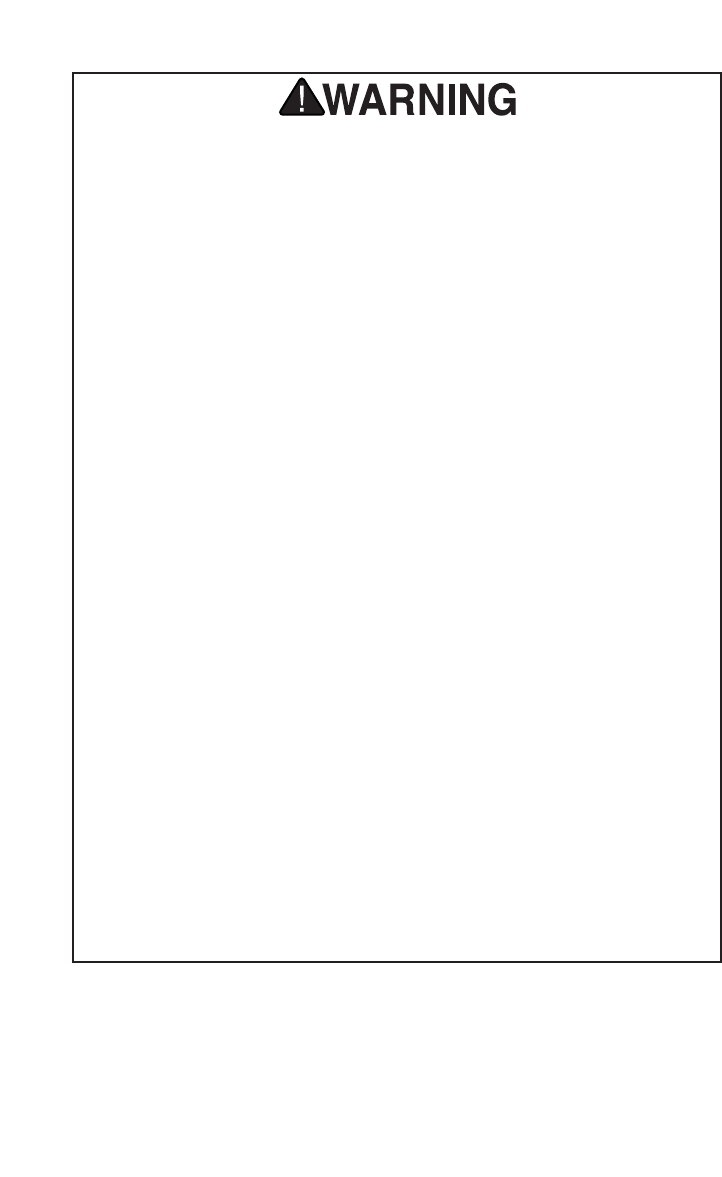
G6044/G6077 16 Gauge Stapler Kit
-2-
10. USE PROPER AIR HOSE for the
tool. Make sure your air hose is in
good condition and is long enough to
reach your work without stretching.
11. WEAR PROPER APPAREL. Do not
wear loose clothing, gloves, neck-
ties, rings, bracelets, or other jewel-
ry which may get caught in moving
parts. Non-slip footwear is recom-
mended. Wear a protective hair cov-
ering to contain long hair.
12. ALWAYS USE SAFETY GLASSES.
Also use a face or dust mask if cut-
ting operation is dusty. Everyday
eyeglasses only have impact resis-
tant lenses, they are NOT safety
glasses.
13. WEAR APPROVED HEARING
PROTECTION.
14. SECURE WORK. Use clamps or a
vise to hold work when practical. It is
safer than using your hand and frees
both hands to operate tool.
15. DO NOT OVERREACH. Keep prop-
er footing and balance at all times.
16. MAINTAIN TOOLS WITH CARE.
Keep tools lubricated and clean for
best and safest performance. Follow
instructions for lubricating and
changing accessories.
17. REDUCE THE RISK OF UNINTEN-
TIONAL STARTING. Do not carry
tool with hand on trigger and always
disconnect from air when not in use.
Safety Instructions For Pneumatic Tools
18. DISCONNECT TOOLS before ser-
vicing and changing accessories.
19. USE THE RECOMMENDED
ACCESSORIES. Consult the
owner’s manual for recommended
accessories. The use of improper
accessories may cause risk of
injury.
20. CHECK DAMAGED PARTS.
Before further use of the tool, a
guard or other part that is damaged
should be carefully checked to
determine that it will operate prop-
erly and perform its intended func-
tion. Check for alignment of moving
parts, binding of moving parts,
breakage of parts, mounting, and
any other conditions that may affect
its operation. A guard or other part
that is damaged should be properly
repaired or replaced.
21. NEVER LEAVE UNATTENDED
TOOL CONNECTED TO AIR.
Disconnect the air hose and do not
leave tool until it is relieved of any
built up pressure.
22. NEVER ALLOW UNTRAINED
USERS TO USE THIS TOOL
WHILE UNSUPERVISED.
23. IF YOU ARE UNSURE OF THE
INTENDED OPERATION, STOP
USING THE TOOL. Seek formal
training or research books or maga-
zines that specialize in pneumatic
tools.


















